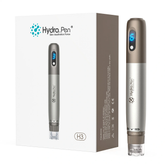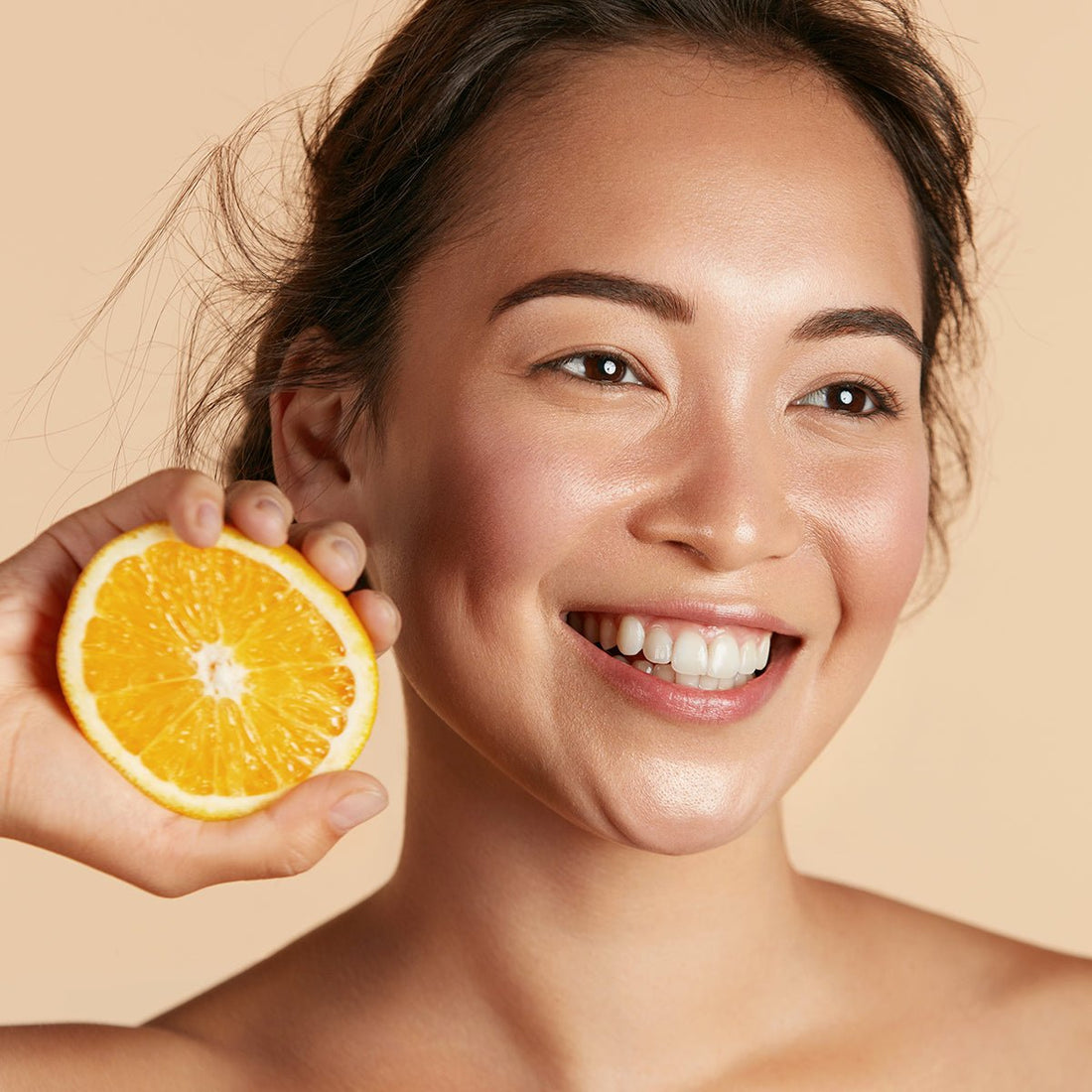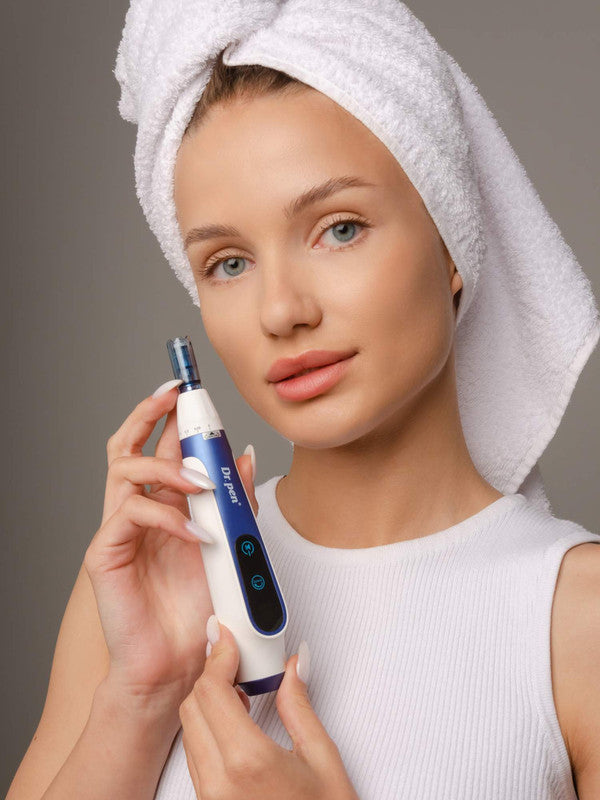Vitamin C has a huge following and rep for a reason – they actually work! Whether you’re targeting uneven skin tone, fine lines, sun damage or dullness, vitamin C can help to minimize a multitude of skin concerns.
Jumping on the vitamin C bandwagon appears to be all the rage at the moment, so we decided to delve deeper into why this special antioxidant is so important in skincare.
What is Vitamin C?
Vitamin C is a potent antioxidant which can neutralize free radicals and aids in your skin's natural regeneration process - this helps your body repair damaged skin cells.
So, in the same way that consuming antioxidant-rich foods aids your body in fighting off free radicals, topical antioxidants do the same for your skin by offsetting daily aggressors like UV damage and pollution.
What Are Antioxidants?
Antioxidants prevent or reduce damage to our cells by neutralizing the production of free radicals. Basically, antioxidants help keep our body healthy. Aside from keeping the signs of premature aging at bay, fighting free radicals may also protect the skin from pre-cancerous changes caused from exposure to UV rays.
Vitamin C and Skin
Vitamin C has an apparently never-ending list of uses! For one, due to its high acidity, when used topically the skin is triggered to heal itself by accelerating the production of collagen and elastin. Of course, if you’ve read our other blogs, you will know that collagen and elastin are both naturally occurring protein fibers in our which help keep the skin firm and plump - see our recent blog on the role of collagen in skin here. So, in helping to promote collagen production, topical vitamin C can help prevent premature aging of the skin.
Vitamin C also contains a property which inhibits your skin's melanin production, which is what causes skin discoloration like dark spots and hyperpigmentation. With continued topical use, vitamin C can help prevent dark spots from forming in the first place!
Using Vitamin C
The best way to incorporate vitamin C into your life is through the daily use of a serum. By adding another antioxidant into the mix such as vitamin E, you’re doubling your antioxidant intake in our serum. It’s also important to make sure your serum is in a dark bottle to maintain stability. As a general rule of thumb, apply your serum underneath your moisturizer. Our own Meleo Vitamin C serum also contains vitamin E and hyaluronic acid for extra antioxidants and hydration.
If you’re new to using vitamin C, you might want to start of with baby steps. Some people find their skin is too sensitive for vitamin C, so test how you react to a couple of applications. You might need to take days off in-between uses and slow the use of other types of skincare such as chemical exfoliants and retinol.
As always, it’s recommended to patch test before use.
Jumping on the vitamin C bandwagon appears to be all the rage at the moment, so we decided to delve deeper into why this special antioxidant is so important in skincare.
What is Vitamin C?
Vitamin C is a potent antioxidant which can neutralize free radicals and aids in your skin's natural regeneration process - this helps your body repair damaged skin cells.
So, in the same way that consuming antioxidant-rich foods aids your body in fighting off free radicals, topical antioxidants do the same for your skin by offsetting daily aggressors like UV damage and pollution.
What Are Antioxidants?
Antioxidants prevent or reduce damage to our cells by neutralizing the production of free radicals. Basically, antioxidants help keep our body healthy. Aside from keeping the signs of premature aging at bay, fighting free radicals may also protect the skin from pre-cancerous changes caused from exposure to UV rays.
Vitamin C and Skin
Vitamin C has an apparently never-ending list of uses! For one, due to its high acidity, when used topically the skin is triggered to heal itself by accelerating the production of collagen and elastin. Of course, if you’ve read our other blogs, you will know that collagen and elastin are both naturally occurring protein fibers in our which help keep the skin firm and plump - see our recent blog on the role of collagen in skin here. So, in helping to promote collagen production, topical vitamin C can help prevent premature aging of the skin.
Vitamin C also contains a property which inhibits your skin's melanin production, which is what causes skin discoloration like dark spots and hyperpigmentation. With continued topical use, vitamin C can help prevent dark spots from forming in the first place!
Using Vitamin C
The best way to incorporate vitamin C into your life is through the daily use of a serum. By adding another antioxidant into the mix such as vitamin E, you’re doubling your antioxidant intake in our serum. It’s also important to make sure your serum is in a dark bottle to maintain stability. As a general rule of thumb, apply your serum underneath your moisturizer. Our own Meleo Vitamin C serum also contains vitamin E and hyaluronic acid for extra antioxidants and hydration.
If you’re new to using vitamin C, you might want to start of with baby steps. Some people find their skin is too sensitive for vitamin C, so test how you react to a couple of applications. You might need to take days off in-between uses and slow the use of other types of skincare such as chemical exfoliants and retinol.
As always, it’s recommended to patch test before use.





















